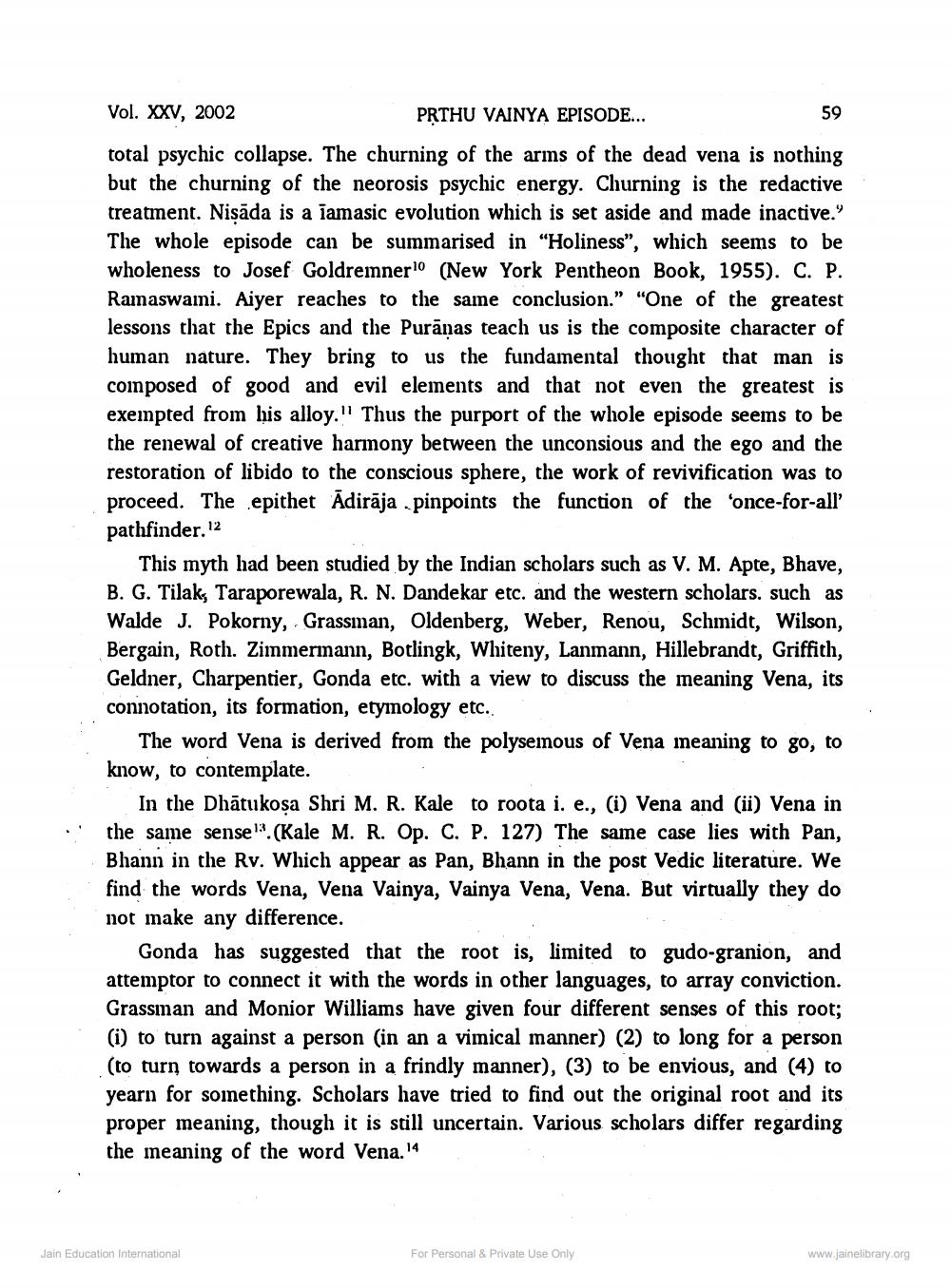________________
59
Vol. XXV, 2002
PRTHU VAINYA EPISODE... total psychic collapse. The churning of the arms of the dead vena is nothing but the churning of the neorosis psychic energy. Churning is the redactive treatment. Nisāda is a iamasic evolution which is set aside and made inactive.' The whole episode can be summarised in "Holiness", which seems to be wholeness to Josef Goldremner 10 (New York Pentheon Book, 1955). C. P. Ramaswami. Aiyer reaches to the same conclusion." "One of the greatest lessons that the Epics and the urānas teach us is the composite character of human nature. They bring to us the fundamental thought that man is composed of good and evil elements and that not even the greatest is exempted from his alloy." Thus the purport of the whole episode seems to be the renewal of creative harmony between the unconsious and the ego and the restoration of libido to the conscious sphere, the work of revivification was to proceed. The epithet Adirāja pinpoints the function of the 'once-for-all' pathfinder. 12
This myth had been studied by the Indian scholars such as V. M. Apte, Bhave, B. G. Tilak, Taraporewala, R. N. Dandekar etc. and the western scholars, such as Walde J. Pokorny, Grassman, Oldenberg, Weber, Renou, Schmidt, Wilson, Bergain, Roth. Zimmermann, Botlingk, Whiteny, Lanmann, Hillebrandt, Griffith, Geldner, Charpentier, Gonda etc. with a view to discuss the meaning Vena, its connotation, its formation, etymology etc.
The word Vena is derived from the polysemous of Vena meaning to go, to know, to contemplate.
In the Dhātukosa Shri M. R. Kale to roota i. e., (i) Vena and (ii) Vena in the same sense". (Kale M. R. Op. C. P. 127) The same case lies with Pan, Bhann in the Rv. Which appear as Pan, Bhann in the post Vedic literature. We
the words Vena, Vena Vainya, Vainya Vena, Vena. But virtually they do not make any difference.
Gonda has suggested that the root is, limited to gudo-granion, and attemptor to connect it with the words in other languages, to array conviction. Grassman and Monior Williams have given four different senses of this root; (i) to turn against a person (in an a vimical manner) (2) to long for a person (to turn towards a person in a frindly manner), (3) to be envious, and (4) to yearn for something. Scholars have tried to find out the original root and its proper meaning, though it is still uncertain. Various scholars differ regarding the meaning of the word Vena."
Jain Education International
For Personal & Private Use Only
www.jainelibrary.org




